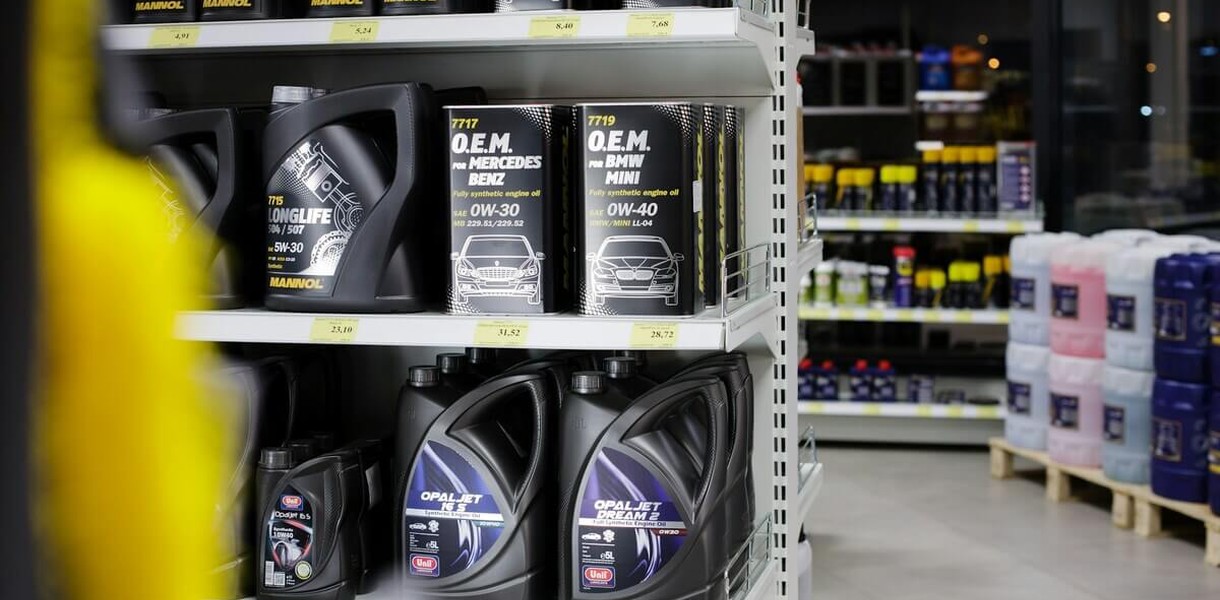Choosing the right oil for your car is essential to maintaining engine performance and longevity. There are two main types of oil that currently dominate the market: mineral oil and synthetic oil. Both provide engine lubrication, but have significant differences in properties, advantages and disadvantages.Next, you can find out what is the difference between synthetic and mineral oil, at the level of general characteristics, advantages, negative aspects specific to each variant. You can also find a short guide that you can follow when looking for the right oil for your vehicle.
content
- Mineral vs synthetic oil - the properties of each type of oil
- Mineral or synthetic oil - differences, advantages and disadvantages
1. Mineral vs synthetic oil - the properties of each type of oil
Automotive mineral oilis a lubricant obtained from the refining process of crude oil. It is a cheap and simple oil. Here are its main features:
- Viscosity varieswith temperature. Mineral oil is more fluid at high temperatures and more viscous at low temperatures.
- The performanceis decent, but it has some shortcomings compared to other types of oil, which we will present in detail in the following.
- Thermal stabilityis relative, being vulnerable at high temperatures.
- Flow at low temperaturesis diminished, making lubrication of engines in cold conditions slower.
- The additivesit accepts are not very numerous.
Image by Markus Spiske on Unsplash.com
Synthetic car oilis another type of lubricant, being manufactured entirely in the laboratory. It is produced from synthesized chemical molecules. Its main properties are:
- The constant viscosityis not influenced by temperature variations, being able to ensure optimal lubrication for both cold start-up and intensive operation.
- The performanceis very good, providing superior protection to the engine against many problems that may arise.
- Thermal stabilityis also good, being a type of oil that is not vulnerable to thermal degradation and oxidation.
- Flow at high temperaturesis good, flow is light at low temperatures, which provides quick lubrication to the engine at start-up.
- The additivesit allows are numerous.
This is an overview of the two types of oil. Next, you can find out what are the major differences between them and how you can choose the optimal solution for your vehicle.
2. Mineral or synthetic oil - differences, advantages and disadvantages
Choosing the right oil for your car can be quite a complicated task. To help you choose a quality oil more easily and quickly, here are the main advantages and disadvantages of the two major categories on the market:
Advantages and disadvantages of mineral oil
- Affordable cost;
- Good for older vehicles;
- Low engine performance;
- Shorter engine life;
- Shorter oil change interval;
- Little protection against deposits and corrosion;
- Poor performance at low temperatures.
Advantages and disadvantages of synthetic oil
- Superior engine performance over a wide range of temperatures;
- Extended engine life;
- Extended oil change interval;
- Protection against corrosion and deposits;
- Good performance at low temperatures;
- Quieter engine operation;
- High cost;
- Not required for all vehicles.
How to choose the right oil for your car?
The type of engineis very important. Follow the car manufacturer's recommendations for the right type of oil for your model.
The age and condition of the vehiclemakes a big difference. Older vehicles with engines with significant wear may be better suited to mineral oil, while newer vehicles with high-performance engines may benefit from synthetic oil.
Driving conditionsare another differentiator. If you use the car often in very high or low temperatures, or in heavy traffic, synthetic oil can offer better protection.
The budgetmust be adapted to the type of oil required. Mineral oil is significantly cheaper compared to synthetic oil. On the other hand, synthetic oil allows for long-term savings by reducing engine wear and extending its life.
Image by Tim Mossholder on Unsplash.com
It is recommended that you carefully consult your car's owner's manual or contact a professional auto mechanic for personalized advice on the right oil for your car.
At Carsandcare.ro we are waiting for you with variousservices, including car sales . You can choose your favorite model, and we help you quickly get into possession of it. You have a lot of advantages, and if you decide to go with us, you can choose to contact us.
In conclusion, whether you are an experienced driver or a novice, it is very important to understand the difference between mineral and synthetic oil so that you can choose the right option for your car, protecting your experience and ensuring a pleasant driving experience.
